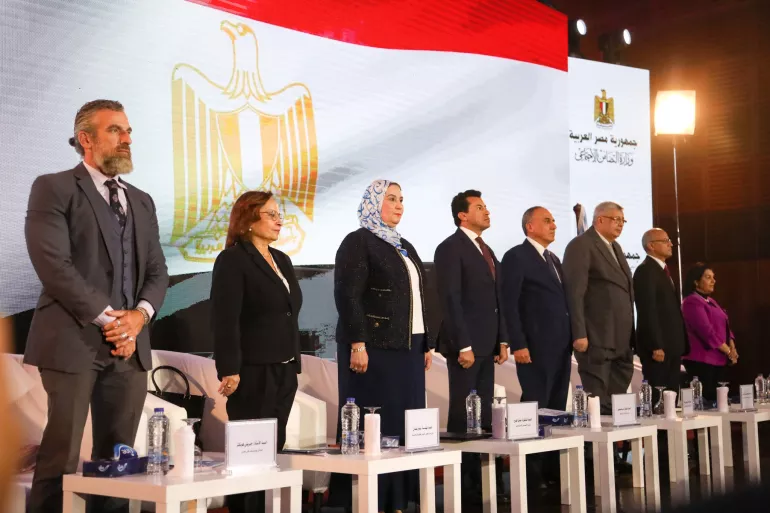
Egypt has taken a decisive step toward a greener future with the launch of the “Skills for Green Jobs in Egypt” study, a joint initiative by the International Labor Organization (ILO) and the World Food Programme (WFP).
Unveiled at a ceremony in Cairo on 27 July 2025, the study aims to equip Egypt’s workforce with the vital skills required to navigate the country’s transition to a sustainable green economy.
Speaking at the event, Minister of Manpower Mohamed Gebran highlighted the study as “a new step in cooperation and joint work,” underscoring the urgent need to respond to global labor market challenges posed by climate change and technological shifts.
“The Egyptian state fully believes that the global labor market faces major challenges as a result of the transition to a green economy,” he said.
Minister Gebran detailed how the government is pursuing policies to restructure the workforce by training workers in emerging fields such as renewable energy, resource efficiency, sustainable agriculture, and waste management.
“We look forward to further coordination,” he added, emphasizing the importance of aligning technical education and vocational training systems with green competencies.
The study’s launch coincides with recent legislative reforms, including the ratification of Egypt’s new Labor Law No. 14 of 2025, which was crafted through extensive social dialogue among government, employers, and workers, with ILO’s support.
The law aims to prepare Egypt’s labor market for new global realities while adhering to international labor standards.
Minister Gebran also stressed the vital role of the private sector as “the engine of development in Egypt,” highlighting efforts to expand apprenticeship programs and invest in training trainers.
“The Ministry is working with all partners to develop our vocational training system and prepare Egyptian youth for the requirements of new professions,” he said, linking the initiative to broader presidential projects such as “Decent Life” and “A New Beginning for Human Development.”
Echoing these sentiments, Eric Oechslin, Director of the ILO Office in Egypt, emphasized the power of social dialogue. “At the heart of any just transition lies tripartite social dialogue,” he said. “We must work together to integrate green skills into national standards, support enterprises in adopting cleaner technologies, and ensure workers are empowered and protected.”
With this comprehensive approach, Egypt is positioning itself as a regional leader in marrying economic growth with environmental responsibility, ensuring its workforce is ready for the green jobs of tomorrow.



